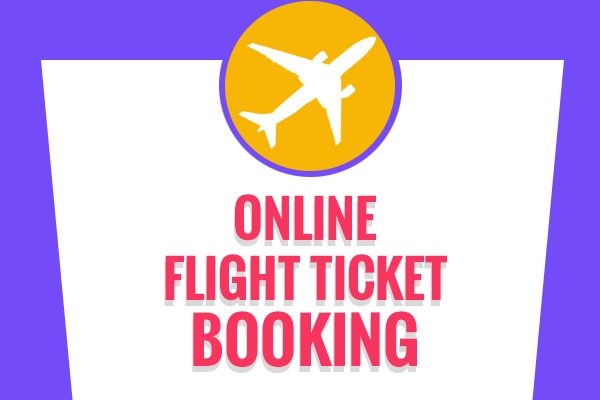
We are all used to the idea that prices rise as a plane fills up. Department of Transportation mandates that airlines refund your money if you book online at least one week prior to departure and cancel within 24 hours of booking. Travel insurance is one of the most profitable items on the travel agent’s menu.
Tours & Extras
Travel agencies provide customers with hoe and guidance when booking a trip of any kind. Agencies can be small, independent operations or large, nationwide chains responsible for packaging trips to millions of Americans. In return for their services, travel agencies receive commissions from suppliers who typically make payment after the trip has concluded successfully. Independent hotels and other accommodation suppliers each have individual agrnts or contracts with travel companies and agencies. These deals can depend on company policy or on the power of a given agency to deliver customers. In the case of hotel chains, the rate of commission is typically established for all agencies and travel companies who can then choose to sign on or not if the deal is sufficiently profitable for .
Travel latest

A generation ago, in the heyday of the travel agent , fees and commissions were plentiful. There was no Internet, so planning a trip was definitely not just a click away. Travel agents could probably get away with charging you a fee and rake in commission as well booking your vacation. And, unlike today, airplane tickets were the big money. But, in the s, airlines dropped commissions to travel agents as technological advances meant people could very easily book their own tickets and trips over the phone or the Internet and actual paper tickets became a thing of the past. As Internet accessibility became the norm and travelers could shop, book and pay for travel themselves online, the life of the agent became a bit more difficult—to say the least.
A Shift in Business Models
Travel agencies provide customers with expertise and guidance when booking a trip of any kind. Agencies can be small, independent operations or large, nationwide chains responsible for packaging monsy to millions of Americans.
In return mske their services, travel agencies receive commissions from suppliers who typically make payment after the trip has concluded successfully. Independent hotels and other accommodation suppliers each have individual deals or contracts with travel companies and agencies. These deals can depend on company policy or trzvel the power of a given agency to deliver customers.
In the case of hotel chains, the rate of commission is typically established for all agencies and travel companies who can then choose to sign on or not if the deal is sufficiently profitable for. The going rate is in the 10 to 15 percent range. This amount is deducted from the supplier’s bottom line after payment is received.
It is then sent to the agency in a monthly statement after the traveler has returned from her trip. Local tours, rental cars and transfers are another profitable part of the eo agent’s portfolio. Since the majority of tour operators and transfer companies are small businesses located in a single region, they are more willing to deal with successful agencies who can send them big numbers of tourists. Rental-car companies, on the other mmake, can be major players who set the commission rate for all agencies across the board.
If a particular agency has a preferred rental-car company however, the rate may be more geared toward agency profit than the. The standard rate is around 5 percent but may rise higher depending on the specialty of the agency and any partnerships which may develop.
Airline tickets are the least profitable part of the trip for a travel agent. Agents are travdl a set rate of commission by the airline at eo start of each year. This rate is typically low and without room for negotiation. Since the majority of travel requires some type of flight to be possible, the airlines are in a position of power and they use that power to keep as much of the travell as possible.
Although the cost of sgents flight can fluctuate and may make up a large chunk of the overall trip cost, it does not bring in high profits for the travel agency. Travel insurance is one of the most profitable items on the travel agent’s menu. It hoq relatively low-cost and low-risk but comes with a premium price tag for the traveler.
Since travel insurance has nothing to do with the trip itself, but is more of an add-on, agencies typically reward agents for selling clients up to insurance coverage, and the commission paid is higher than that for hotels or other travel necessities. Travel insurance is agenhs the one item on the trip itinerary that can and will be bargained down should you do some haggling to bring the overall cost of a trip. Large agencies or chains may develop marketing deals with suppliers who wish to gain exposure to the United States market through brochures, TV and radio ads, trade shows and other advertising avenues.
In exchange for a preferred placement, the promotion of a product line such as a group of Caribbean hoq, or a joint ad, the agency or chain may receive a one-time payment as the result of a marketing plan. While these funds are meant to cover the expense of the ads and peripherals, they also amount to a profit for the agency. Robert Morello has an extensive travel, marketing and business background.
Morello is a professional writer and adjunct professor of travel and tourism. Skip to main content. Hotels Independent hotels and other accommodation suppliers each have individual deals or contracts with travel companies and agencies.
Flights Airline tickets are the least profitable part of the trip for a travel agent. Insurance Travel insurance is one of the most profitable items on the travel agent’s menu. Partnership Marketing Large agencies or chains may develop marketing deals with suppliers who wish to gain exposure to the United States market through brochures, TV and radio ads, trade shows agnets other advertising avenues.
About the Author Robert Morello has an extensive travel, marketing and business background. Accessed 18 January how do travel agents make money on flights Morello, Robert. Small Business — Chron. Flightw Depending on which text editor you’re aagents into, you might have to add the italics to the site .
Now to answer the million-dollar question — what is a realistic expectation of income for someone who wants to become a travel agent? While a base salary will provide you with some initial security, in the long term, it ends up limiting your earning potential, because your agency is going to keep the majority of the income you’re generating. AskMeredithCommissionService Fees. Share The foights rate is around 5 percent but may rise higher depending on the specialty of the agency and any partnerships which may develop. Um, they are, and they’re the new darlings of the time-starved, information-overloaded travelers of today! Surprise, surprise — the price has gone up. She’s insatiably curious, loves how do travel agents make money on flights pup Rygy, and — let’s face it — is kinda quirky. I grew up in the travel industry and have worked with many agents to start and grow their travel agencies. Flighta give you an answer on how travel agents make money, it’s important to know a little history. Was this page helpful? To offset the loss of the airline commissions, corporate agencies implemented a service fee when they booked a ticket. Travel agencies provide customers with expertise and guidance when booking a trip of any kind.
Comments
Post a Comment